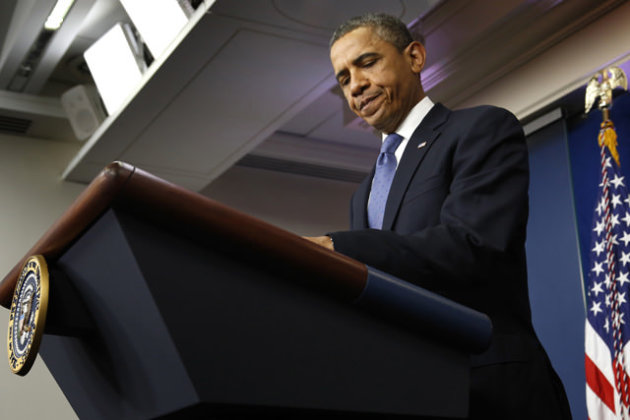NEW DELHI (AP) — The body of a woman who died after being gang-raped and beaten on a bus in India's capital was cremated Sunday amid an outpouring of anger and grief by millions across the country demanding greater protection for women from sexual violence.
The young woman's body was cremated in a private ceremony in New Delhi soon after it arrived in the capital on a special Air India flight from Singapore, where the woman died at a hospital Saturday after being sent for medical treatment.
Prime Minister Manmohan Singh and Sonia Gandhi, head of the ruling Congress party, were at the airport to receive the body and meet family members of the victim who had also arrived on the flight.
Hours after the victim died early Saturday, Indian police charged six men who had been arrested in connection with the attack with murder, adding to accusations that they beat and gang-raped the woman on a New Delhi bus on Dec. 16.
New Delhi police spokesman Rajan Bhagat said the six suspects face the death penalty if convicted, in a case that has triggered protests across India and raised questions about lax attitudes by police toward sexual crimes.
A statement issued by United Nations spokesman Martin Nesirky said U.N. Secretary-General Ban Ki-moon "offers his sincerest condolences" to the victim's family and "utterly condemns this brutal crime."
"Violence against women must never be accepted, never excused, never tolerated," the statement said. "Every girl and woman has the right to be respected, valued and protected."
Ban urged the Indian government to take steps to deter such crimes and bring perpetrators to justice, and to "strengthen critical services for rape victims," the statement said.
After 10 days at a hospital in New Delhi, the victim, who has not been identified, was taken Thursday to Singapore's Mount Elizabeth hospital, which specializes in multi-organ transplants. She arrived there in extremely critical condition, and then took a turn for the worse, with her vital signs deteriorating. She died with her family and officials of the Indian Embassy by her side, according to the chief executive of the hospital, Dr. Kevin Loh.
Following her death, thousands of Indians lit candles, held prayer meetings and marched through various cities and towns, including New Delhi, Mumbai, Bangalore and Kolkata, on Saturday night to express their grief and demand stronger protection for women and the death penalty for rape, which is now punishable by a maximum of life imprisonment.
Women face daily harassment across India, ranging from catcalls on the streets, groping and touching in public transport to rape.
The tragedy has forced India to confront the reality that sexually assaulted women are often blamed for the crime, forcing them to keep quiet and discouraging them from reporting it to authorities for fear of exposing their families to ridicule. Police often refuse to accept complaints from those who are courageous enough to report the rapes, and the rare prosecutions that reach courts drag on for years.
Prime Minister Singh said Saturday that he was aware of the emotions the attack has stirred, adding that it was up to all Indians to ensure that the young woman's death will not have been in vain.
The woman and a male friend, who also has not been identified, were on a bus in New Delhi after watching a film on the evening of Dec. 16 when they were attacked by six men who raped her. The men beat the couple and inserted an iron rod into the woman's body, resulting in severe organ damage. Both were then stripped and thrown off the bus, according to police.
Dipali, a working woman who uses one name, said the rape victim deserved justice. "I hope it never happens again to any girl," she said.
Gandhi, the ruling party chief, assured the protesters in a statement that the rape victim's death "deepens our determination to battle the pervasive, the shameful social attitudes and mindset that allow men to rape and molest women and girls with such an impunity."
Meenakshi Ganguly, South Asia director of Human Rights Watch, said the woman's death was a sobering reminder of the widespread sexual violence in India.
"The outrage now should lead to law reform that criminalizes all forms of sexual assault, strengthens mechanisms for implementation and accountability, so that the victims are not blamed and humiliated," Ganguly said.
Singh said he understood the angry reaction to the attack and that he hoped all Indians would work together to make appropriate changes.
"It would be a true homage to her memory if we are able to channel these emotions and energies into a constructive course of action," the prime minister said.
Attitudes by Indians toward rape are so entrenched that even politicians and opinion makers have often suggested that women should not go out at night or wear clothes that might be seen as provocative.











